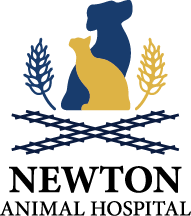Library
-
Neutering is also referred to as orchidectomy or castration. It is a surgical procedure in which the testicles are removed to sterilize or render a male animal infertile. There are many behavioral and health benefits associated with neutering your rat. Most rats are neutered between four and six months of age.
-
All pets, including rodents, sugar gliders, and hedgehogs, need an initial examination by a veterinarian and at least an annual check-up to allow for early detection and treatment of potentially life-threatening diseases. During this visit, your veterinarian will perform a physical examination and various diagnostic tests to determine your pet's state of health and to see if your pet might be harboring any diseases that require treatment.
-
Niacinamide is given by mouth and is used off label to treat inflammatory skin conditions in conjunction with other medications. Give as directed by your veterinarian. The most common side effects include lack of appetite, vomiting, diarrhea, and sleepiness. Do not use in pets that are allergic to it or that are undergoing skin allergy testing within the next two weeks. If a negative reaction occurs, please call your veterinary office.
-
Nitenpyram is given by mouth and is used on and off label to treat adult flea infestations and fly larvae infestations. Give as directed by your veterinarian. The most common side effect is itchiness. Do not use in pets that are allergic to it, in pets that weigh less than 2 pounds, or in pets younger than 4 weeks old. If a negative reaction occurs, please call your veterinary office.
-
Nitrofurantoin is an antibiotic used to treat bacterial urinary bladder infections. It is typically used as a second-line antibiotic, when broad-spectrum antibiotics have not cleared the infection. It is used “off label” or “extra label” in veterinary medicine. Nitrofurantoin comes in capsule or liquid forms given orally. Never use in food-producing animals or animals intended for food.
-
Nose Bleeds (Epistaxis) in cats can be extremely unsettling for the pet owner. Most acute (sudden) nosebleeds are caused by simple trauma or by upper respiratory tract infections. This handout discusses nosebleeds in cats, the various causes of this condition, first aid recommendations and possible testing to find the root cause of the problem.
-
Nose Bleeds (Epistaxis) in dogs can be extremely unsettling for the pet owner. Most acute (sudden) nosebleeds are caused by simple trauma or by upper respiratory tract infections. This handout discusses nosebleeds in dogs, the various causes of this condition, first aid recommendations and possible testing to find the root cause of the problem.
-
Nonsteroidal anti-inflammatory drugs (NSAIDs) are most often used to reduce pain, inflammation, and fever, much like how ibuprofen and naproxen are used by humans. In pets, they are most used around surgical procedures, after injury, or to help manage chronic pain such as that of osteoarthritis. Risks and potential side effects are discussed.
-
The term 'nutraceutical' was coined to represent compounds found in food and herbs that are not technically considered nutrients, such as vitamins or minerals, but may have a profoundly beneficial impact on the health of the body. Common examples of nutraceuticals include glucosamine, which is used in the treatment of arthritic conditions for both dogs and cats, and antioxidant compounds, that help in the prevention of cancer.
-
A nutraceutical is a food or food product that reportedly provides health and/or medical benefits. In addition to diet modifications, exercise, weight loss, and medications, joint support nutraceuticals are also helpful in an osteoarthritis management program. Nutraceuticals are not subjected to the same testing and regulation as pharmaceuticals. Your veterinarian can advise you on products that have been evaluated and have yielded positive effects.


